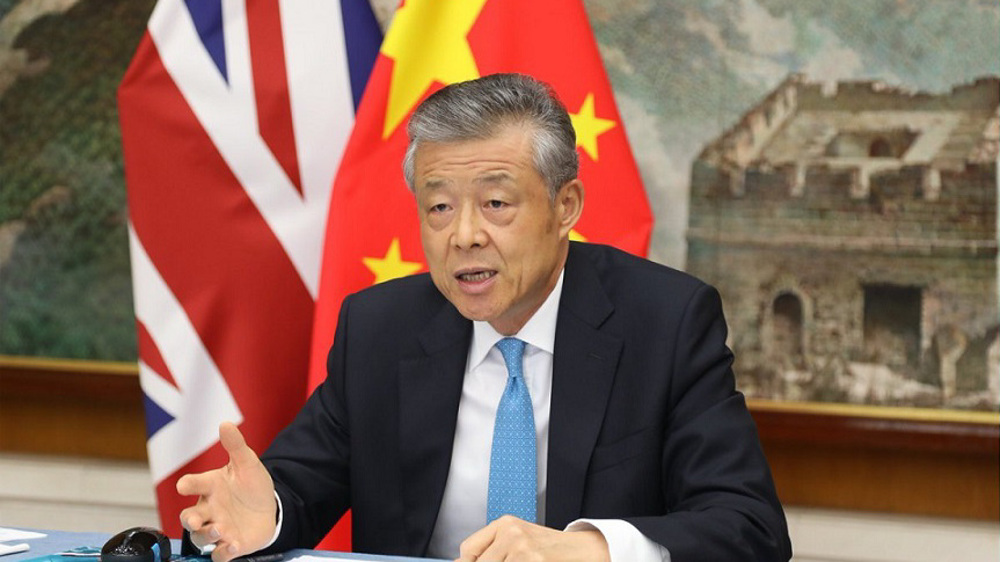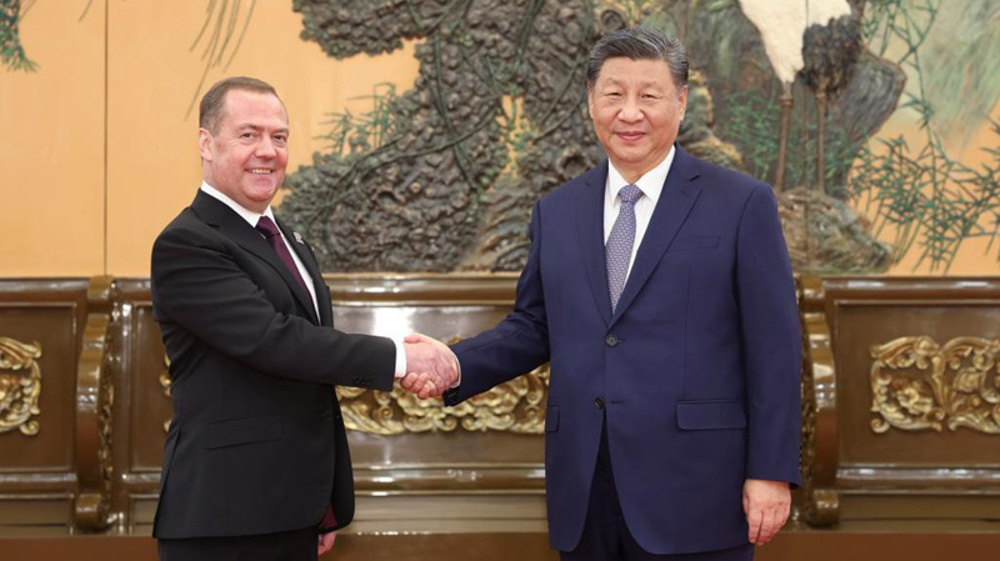Beijing slams UK for ‘gross interference’ in China’s internal affairs
China says Britain is ‘grossly meddling’ in its domestic affairs through planning to grant residency to the citizens of Hong Kong as well as irresponsible comments over a new security law in the semi-autonomous city.
“This move constitutes gross interference in China’s internal affairs and openly tramples on the basic norms governing international relations,” said China’s Ambassador to the UK Liu Xiaoming in a press conference on Monday, referring to London’s offer of the right to settle in the UK and ultimately apply for citizenship.
British Prime Minister Boris Johnson recently said during a speech to Parliament that London would “introduce a new route” for those Hong Kong citizens with the British National (Overseas) passports to resettle in the UK.
Currently, there are some 350,000 holders of the BN(O) passports in Hong Kong, and 2.6 million others living there are eligible for receiving such a document.
Under the new policy, which is said to be due for implementation in the coming months, the BN(O) passport holders and their dependents would be allowed to move to the UK for five years, and after a further year, they would be able to apply for British citizenship.
Liu said Beijing would decide on its response after seeing how Britain proceeded with its passport bid.
Regarding the UK’s criticism of the new security law in Hong Kong, the Chinese envoy said, “The UK government keeps making irresponsible remarks on Hong Kong affairs.” This has so far been the strongest rebuke Beijing has issued to Britain since London criticized the security law.
Britain and some other Western countries have harshly criticized the new national security legislation for Hong Kong, which was enacted on Tuesday and which they say harms the city’s semi-autonomous status. Beijing rejects the allegations.
The new security law criminalizes sedition, secession, and subversion against mainland China, and allows Chinese national security institutions to operate in Hong Kong for the first time since 1997, when Hong Kong returned from British to Chinese rule.
Chinese and Hong Kong authorities insist that the law would only target a minority of people, and have vowed to restore business confidence after a year of unrest in the city.
The British Prime Minister is currently under intense pressure from the US and some British legislators to ban Huawei, the Chinese tech giant, on alleged security grounds, prompting him to adopt a tougher stance toward the company and its possible involvement in the development of Britain’s 5G infrastructure.
Lieu said that, although Beijing wanted friendly relations with London, there might be many consequences if Britain treated China as an enemy or with suspicion.
“We want to be your friend. We want to be your partner. But if you want to make China a hostile country, you will have to bear the consequences,” the Chinese envoy said.
He also warned that a U-turn on London’s Huawei decision would damage Britain’s image as an open, business-friendly environment and it meant the British government had to “bounce to the tune of the other countries.”
China issues travel warning for Canada
In a regular press conference on Monday, China’s Foreign Ministry Spokesman Zhao Lijian renewed Beijing’s condemnation of Canada’s criticism of the new national security law for Hong Kong.
“China strongly condemns this and reserves the right to make a further response. All consequences arising therefrom will be borne by Canada,” he said.
Canadian Prime Minister Justin Trudeau has announced that Ottawa is suspending its extradition treaty with Hong Kong due to the new security legislation.
Furthermore, the country’s Foreign Affairs Minister Francois-Philippe Champagne called the law “a significant step back” for what he described as liberty.
“China urges Canada to immediately correct its mistakes and stop interfering in Hong Kong affairs and China's internal affairs in any way, so as to avoid further damage to China-Canada relations,” Zhao further said, stressing, “Any attempt to put pressure on China will never succeed.”
Beijing also rebuked Ottawa a week ago over its criticism about the alleged “prosecution” of Canadians in China.
The bilateral relations of China and Canada have been tense since 2018 when Canadian authorities arrested Meng Wanzhou, the chief financial officer of Huawei Technologies Co, on a warrant issued by the United States.
President Yoon Suk Yeol to be removed from office
At least 19 Gazans killed by Israeli airstrikes since dawn: Medics
Leader: Iran neither has nor needs proxy forces
US fighter aircraft shot down ‘in friendly fire’ amid aggression on Yemen
Yemeni FM: Israel’s sponsors accountable for ongoing aggression on Sana’a
Eight Palestinians killed as Israel attacks Gaza school, hospitals
VIDEO | Rome, Milan host new protests in solidarity with Palestinians
Dec. 21: ‘Axis of Resistance’ operations against Israeli occupation












 This makes it easy to access the Press TV website
This makes it easy to access the Press TV website